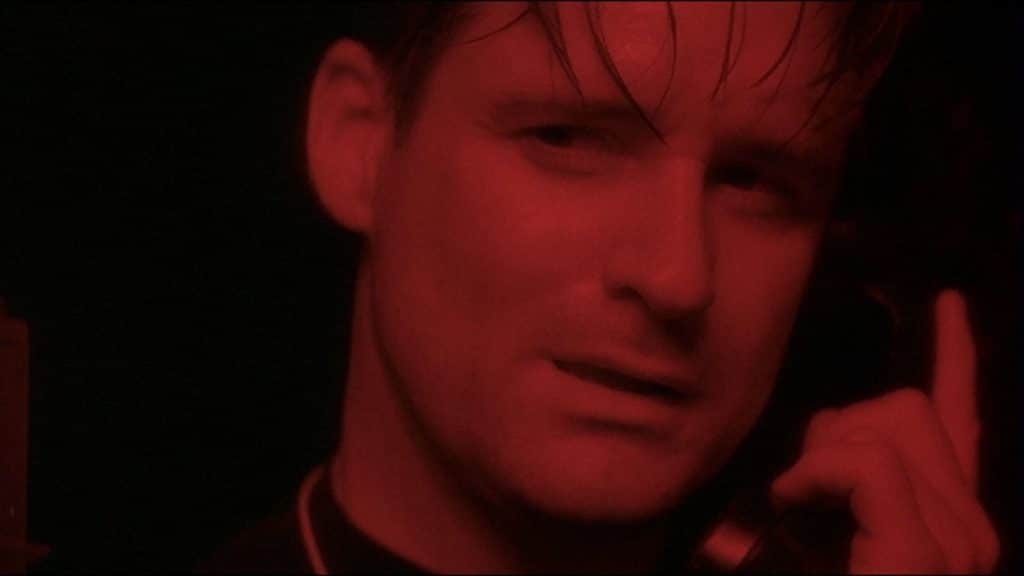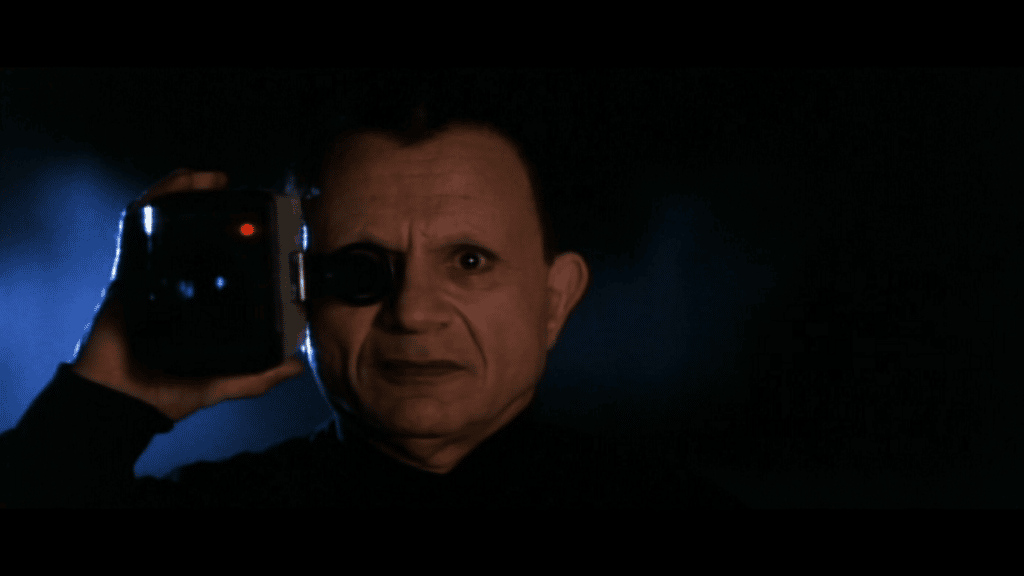Read also:
How to Watch FX Live Without CableHow To Watch AMC Without CableHow to Watch ABC Without CableHow to Watch Paramount Network Without CableA look back at one of David Lynch’s most perplexing motion pictures (and that’s saying something).
Of all David Lynch’s films, Lost Highway has confounded me since I first saw it 25 years ago. There are movies of Lynch’s that I like less, and movies of his that I’ve shifted my opinions on with time. But in those cases, I always emerged—sometimes dazed—with a grasp on what Lynch was attempting to do with the picture and a good idea of whether he’d successfully done it.
Lost Highway, however, remains baffling. Its ideas, themes, and images are often striking individually, but do not reliably cohere into a satisfying whole. Indeed, it’s most interesting a dry run for concepts that Lynch would execute more effectively in his subsequent efforts.
This was Lynch’s first film since 1992’s then-reviled Twin Peaks: Fire Walk with Me —the big-screen prequel/sequel to his and Mark Frost’s groundbreaking TV series (Which has in recent years been re-evaluated as one of Lynch’s finest works in any medium)It was a collaboration between Lynch and Barry Gifford, —author of the original novel Wild at Heart—built from the phrase “lost highway,” which Lynch had first encountered in another Gifford book, 1992’s Night People. they ultimately developed Lost Highway’s undeniably odd and bifurcated narrative—one that touched on classical film noir tropes and which was heavily inspired by the O.J. Simpson murder case.
The film opens on a seemingly ordinary couple, saxophonist Fred Madison (Bill Pullman) and his wife Renee (Patricia Arquette), who suddenly find themselves plagued by a series of videotapes that turn up on their doorstep, videotapes that show the inside of their house and them sleeping in bed. The tapes, along with a strange message that Fred receives on the intercom informing him that “Dick Laurent is dead,” are unnerving, and the cops are useless.

One night at a party, Fred meets a mysterious man (Robert Blake) who claims that he is actually at Fred’s house at that very moment and subsequently proves it. The next morning, another tape arrives, showing Fred standing over Renee’s mutilated corpse, a crime for which he is arrested and sentenced to death. While on Death Row, Fred is plagued by bizarre visions; one day, a prison guard is astounded to find that Fred is gone, replaced by a complete stranger.
This is Pete Dayton (Balthazar Getty), a young garage mechanic who has absolutely no idea of how he wound up in the cell. With no obvious connection to the crime, he is released into the care of his parents and returns to work. Pet, it turns out, is the favorite mechanic of hotheaded local gangster Mr. Eddy (Robert Loggia), who stops by to get his Cadillac tuned up in the company of his mistress, Alice (Arquette again).
From the moment he first sees her, Pete is besotted with Alice. They soon begin an affair. Alice, afraid that Mr. Eddy knows of the affair, hits upon the idea of robbing a home belonging to a friend of hers and skipping town for good. It’s noir, so things go sideways. It’s a Lynch picture, so when they go sideways, it’s a mind-bender in addition to a boondoggle.
My problem with Lost Highway is not the fact that it’s confusing. Indeed, in practice, it’s fairly comprehensible. It’s a story about obsession, one that owes a debt to Vertigo. Lost Highway is stranger and more abstract than many other Hitchcockian riffs but there’s a great deal that’s familiar here.
While Lynch has never shied away from disturbing sexual and violent imagery in his earlier films (even something as nominally sexless as Dune gets kinky in parts), Lost Highway sees him really turn the dial up on both. and While some of these moments are legitimately sexy and/or creepy, others sputter out uncomfortably at the merely grotesque.
Lynch fills the film with stunt castings that include Henry Rollins as a prison guard, Gary Busey as Pete’s straight-arrow dad, accused sexual abusers Marilyn Manson and Twiggy Ramirez as porn stars, and an MS-ravaged Richard Pryor in what would prove to be his last screen appearance. On a more coherent note, it boasts a killer soundtrack featuring contributions from the likes of Trent Reznor and Nine Inch Nails, David Bowie, Rammstein, Smashing Pumpkins, and longtime Lynch collaborator Angelo Badalamenti.

I have serious reservations about Lost Highway as a whole, but there are still things about it that I like a lot and which bring me back to it now and again. The performances are all quite good—I would go so far as to say that Arquette’s twin performances (or are they?) here stand as her best work to date. TA number of individual moments are as striking and memorable as anything Lynch has done, The weirdo party conversation between Pullman and Blake may just be the freakiest thing he has ever staged. The moment when Pete first lays eyes on Alice, scored to Lou Reed’s rendition of the Doc Pomus classic “This Magic Moment,” brilliantly evokes lust at first sight. The sequence in which Mr. Eddy forces a tailgater to pull over and proceeds to literally beat the rules of the road into him is both horrifying and darkly hilarious. And the final seconds are unforgettable, cinema that burns itself into the brain.
With that said, Lost Highway is most interesting when considered a testbed for narrative approaches that Lynch would deploy more fruitfully in later projects, like his 2001 dream-creeping-into-dread masterpiece Mulholland Drive, and his 2006 epic Inland Empire. Taken together, they make for a trilogy of sorts.
If you’ve never seen a David Lynch picture, Lost Highway is about as far from a suitable entry point as possible—even Lynch fanatics sometimes struggle to embrace it. To speak personally, I find it to be one of his weaker projects. That said, it is still studded with moments of absolute brilliance and if you have even the slightest interest in Lynch, it is mandatory viewing. Whether you like it or hate it, it and sensations of fear and/or confusion it generates will stick with you for a long time after you see it. For a picture like Lost Highway, that’s a rave.